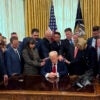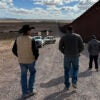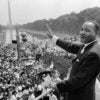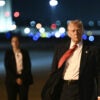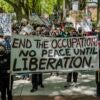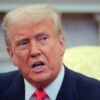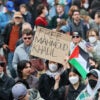Has Burma made enough reforms to have military-to-military cooperation with the U.S.? Congressman Steve Chabot (R–OH) says no.
In a recent speech at The Heritage Foundation, Chabot noted that the Obama Administration has been too hasty to reward Burma for its reforms and is unclear on what its policies in Burma are in the long run. Rather than adhering to its initial “action for action” approach toward Burmese political reform, Chabot asserted, the Administration has settled for a policy of “action for hope.”
The Daily Signal depends on the support of readers like you. Donate now
John Sifton from Human Rights Watch added that the Obama Administration has failed to lay out benchmarks for reform and has not created an incentive structure that will encourage future reforms.
Jennifer Quigley, executive director for U.S. Campaign for Burma, noted that this is because the Administration has “over-valued engagement and undervalued the significance of sanctions.”
Burma has experienced major political reforms, but these reforms have been offset by nagging problems, including continued human rights abuses against minority ethnic and religious groups such as the Christian Kachin and Muslim Rohingya, sexual slavery, detention of political prisoners, and rampant land confiscation.
Additionally, Burma has continued its illicit relationship with North Korea. Keith Luse, a former Republican staffer on the Senate Foreign Relations Committee, asked a series of 10 questions about the nature of North Korea’s cooperation with Burma, the role that Burma is playing in advancing North Korea’s nuclear capabilities, and the number and type of weapons exchanged between the two countries.
Burma has received premature rewards for its yet reversible political reforms. In addition to a reduction in sanctions, Burma was granted observatory status for the Cobra Gold military exercises—the largest multinational military exercises in Southeast Asia—despite the Burmese military’s well-documented record of brutality. According to Quigley, rewards for improvements should go to the reformers or the Burmese government, not the military, which has done little in the reform process.
The Obama Administration has failed to be completely transparent with its policies toward Burma. In fact, Chabot recounted how the Administration has refused for months to publicly testify on Burma policy before the House Subcommittee on Asia and the Pacific, leaving many in the policy community in the dark about what its intentions are for military-to-military relations with Burma.
The Administration needs Burma to be a success story—and, in fact, is already championing Burma as such. But Burma has not yet proven that its reforms will last. Rather than delivering a hasty reward, the Obama Administration should be more transparent, measured, and calculating in the way that it engages with Burma. Military-to-military cooperation with Burma at this point in time is premature.
